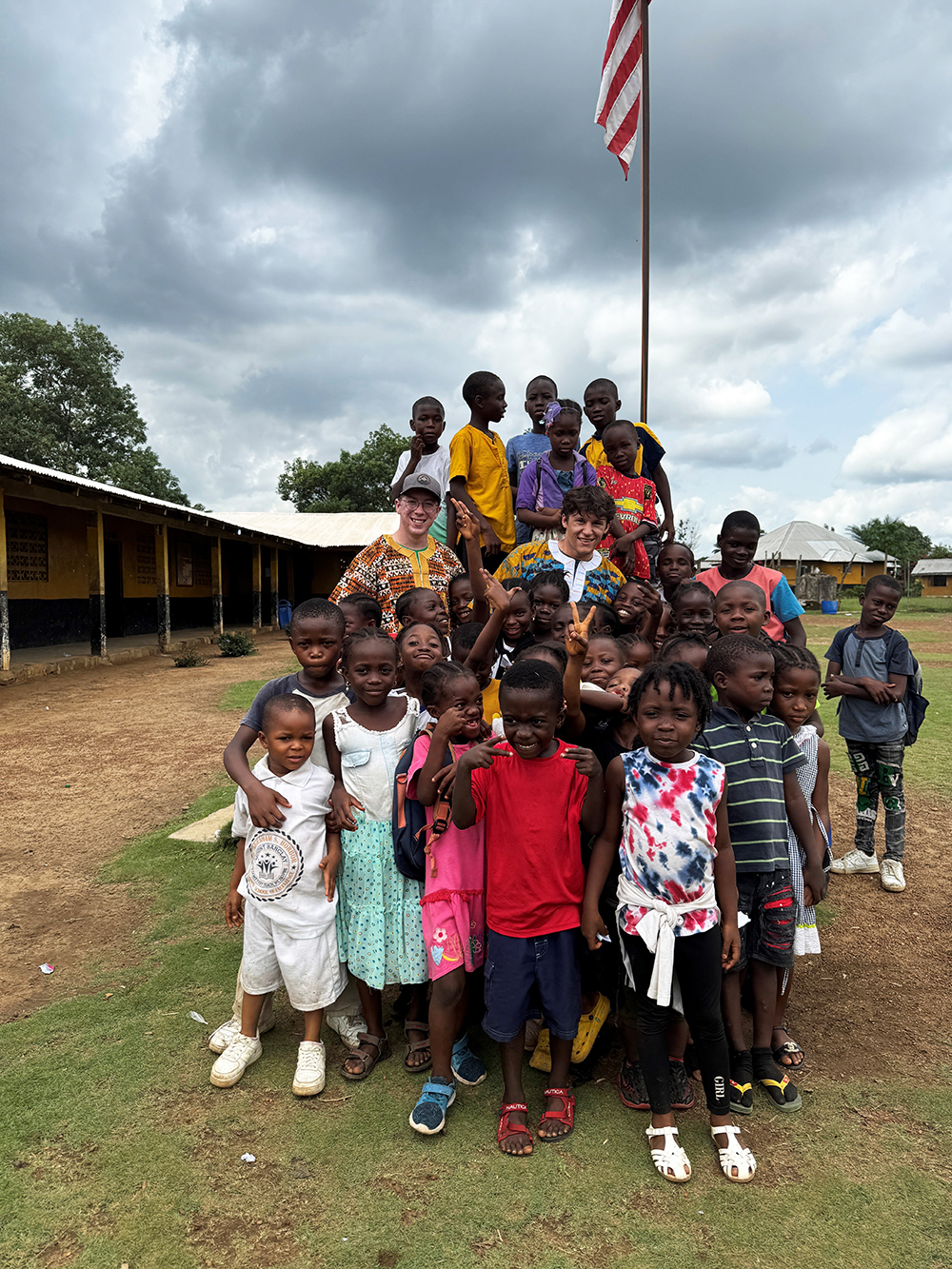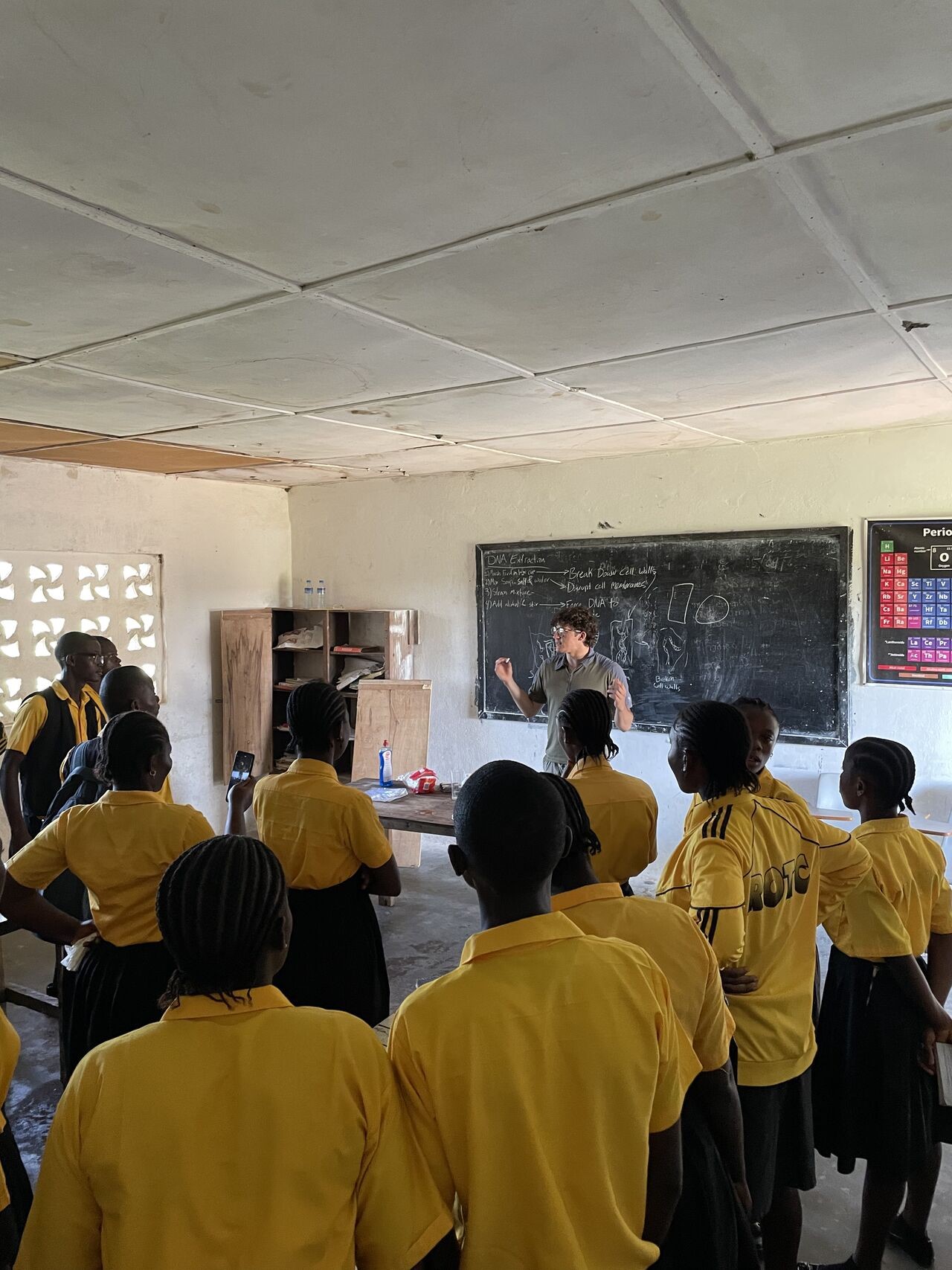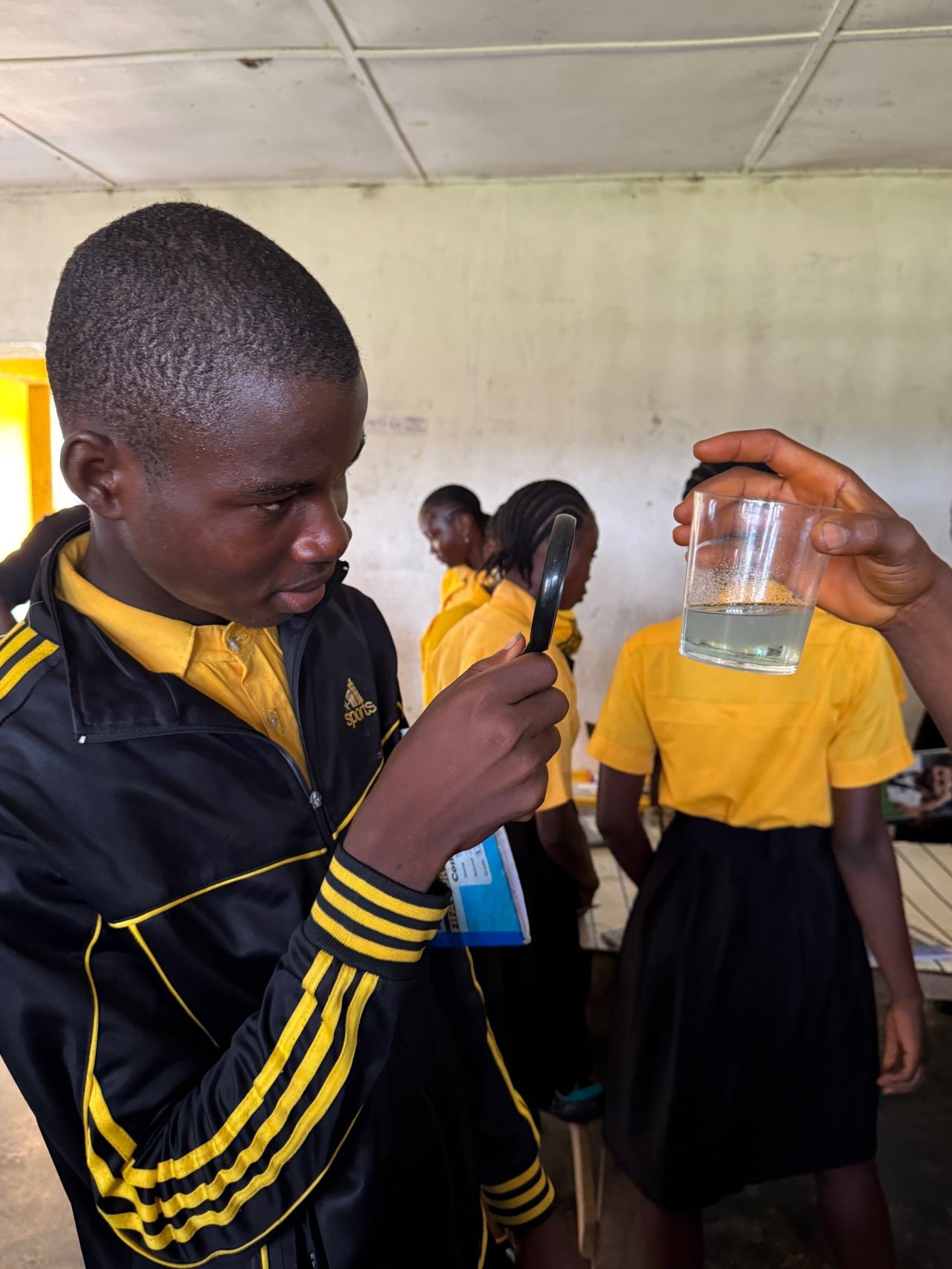South Dakota Mines Students Help Transform a Rural School in Liberia

For South Dakota Mines students Jonathan Brickey and Cambell Thompson, engineering isn’t confined to textbooks
or labs — it’s about using their skills to make a difference. This summer, the two
traveled to Liberia with Engineers and Scientists Abroad (ESA), where they immersed
themselves in village life, installed new technology, taught science labs, and even
found themselves playing in a local soccer match, all while helping expand educational
opportunities at a rural school.
“I am always looking for ways to combine my engineering skills with my other interests,” said Thompson, a 2025 mechanical engineering graduate and current student in the materials and engineering science (MES) master’s program. “ESA really fulfilled this, mixing my passion for travel and community service with my education. As an engineer, I want to use my skills for good, and this is an opportunity to do that.”
During their nine-day trip to the west African country, Brickey and Thompson tackled three projects: installing a Starlink system to provide reliable internet access for students, teachers and administrators; conducted hands-on science labs for seventh – 11th-grade students who have little access to experiential learning; and developed a utility map of the village’s plumbing, electrical and sewage systems to support future development.
“This trip really showed me how much engineering problems exist in other nations largely because they don’t have the resources or expertise,” said Brickey, a sophomore chemical engineering major. “As an engineering student, I am learning how to solve problems and innovate solutions. With these trips, I can put these to practice while working with limited resources and various people’s backgrounds.”
This is the fifth time Mines students have gone to Liberia, partnering with the nonprofit Bridges of Hope, which has been working in Liberia for two decades.
Prior to traveling to Liberia, Brickey and Thompson developed a plan on what they wanted to accomplish and how to do it. “We even went out to get things that would be harder to get in Liberia, so we could bring them with us,” Brickey said. The two met with the school’s principal, Elijah Kobbia, to coordinate their projects and timeline.
Despite some initial challenges with the internet installation, Brickey and Thompson created a fast and reliable connection for the school and are brainstorming possible improvements.
“As of now, it still has some troubles with connection strength, range, and power, but hopefully in the future, it can be upgraded to be on solar panels and have a way to give the signal to more places, maybe even throughout the village,” Brickey said.
The administration and students are grateful for the improved technology. "The idea
of the dish was pretty foreign to a lot of the community members,” Thompson said.
“Most were impressed and grateful to have such cool technology on their campus.”
For Brickey and Thompson, one of the most rewarding parts of the trip was interacting with the students during the labs. The two included a lecture with each lab to explain the concepts to the students. “They were incredibly engaged and found the labs fascinating,” Brickey said.
The two facilitated two to three labs in chemistry, biology, and physics. “We got to see firsthand how the labs invigorated the students and their passion toward science,” Thompson said. “They performed the labs in small groups and watched the concepts they learned illustrated in real life. It was awesome to see how resourceful the students are and how fast they could pick up the concepts we were teaching.”
One of Thompson’s most memorable moments from the trip wasn’t about engineering at all—it was about connection. “Some local guys invited Brickey and me to join their soccer match against another church team. We thought it would be a relaxed, informal game,” he said. “Next thing we knew, they were handing us jerseys and assigning positions. We weren’t exactly skilled players, but we gave it our all.”
Both Thompson and Brickey said the experience in Liberia opened their eyes to new possibilities, both professionally and personally, and showed them how their skills could have a global impact.
“I truly think experiences like this, especially at a young age, inform and expand the values and priorities that young professionals take forward throughout their lives and careers,” Thompson said. “As engineers, scientists, and humans, we have a responsibility to use our skills and knowledge in a positive way.”